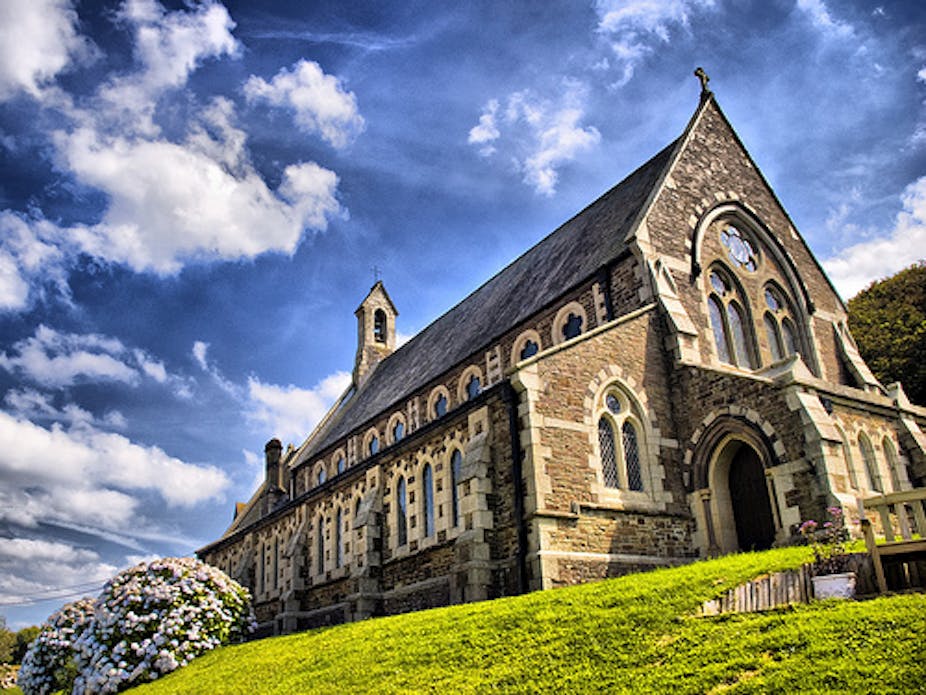Following the publication of Alain de Botton’s new book Religion for Atheists, there has been a curious development: a fight between atheists.
At one level the conflict looks crazy. The only condition for being an atheist is that you reject all supernatural explanation. In that sense, de Botton is as much an atheist as it is possible to be. What could the fight possibly be about?
The secular position leaves open two large topics on which there can be disagreement. How should you think about people who do have religious convictions? And what might religions have been getting right – even if their foundational beliefs were false? De Botton’s answers to these questions set him apart from militant atheists. And they reveal a great deal about the underlying character of his own philosophy. (He is understandably, but wrongly, thought of as a primarily a populariser.)
De Botton starts from the view that religious belief should not be mocked or humiliated. Clearly, faith plays a profound and highly valuable role in the lives of very many people. It is destructive – and cruel – to try to abolish or ridicule such faith until atheism has evolved ways of meeting those needs.
De Botton’s point is that the exciting question about religion is no longer “is it true?” but “how should we imagine and address the needs that take individuals to religion.” People bring immense longings for emotional order, for depth of meaning, for grandeur, beauty, forgiveness and compassion into their religious lives. These needs should be taken very seriously – even if you think that they have been attached to false beliefs.
Equally, religions have accomplished at least some very impressive things. It’s not simply that religions “inspired” great art, architecture and music. That misses something crucial. Religions got great results in these fields because of the way they approached them. They asked architects to build so as to generate a reliable sense of utmost solemnity and grandeur; and they honed this expertise over long periods of time. It was the deliberate aim, not just the background faith, that made the difference.

The architectural theme came to a head recently over de Botton’s proposal to raise a secular temple in London’s financial district. The plan is to construct an elegant column that will invite people to contemplate the longest history of humanity: a monument to the long-term, in the heartland of short-term decision-making. The leader of militant atheism Richard Dawkins was not impressed and described it as a waste of money, from the point of view of advancing a secular world-view.
In a curious way this is a seminal moment for atheism. Its first generation was militant because it had to fight to be heard. The second generation of atheism simply does not have this problem. There are very large numbers of people who have no problem at all with a secular outlook. And the form in which most people – in Australia today – are likely to encounter religion is as a modest, very kindly and considerate attitude to life. The horrors of arrogance and brutality are in the past, even though older people still bear some scars.
Militant atheism is, in this state of affairs, counter-productive. It argues violently against people who are, for the most part, obviously very good and decent and sincere. Of course there are a few exceptions even now (and in the US there may be more than a few) but dealing with this hardly requires massive intellectual firepower. But if religion is linked to meanness and bullying, those problems are defects of personality, which will never be touched by logic or evidence. In a sense, militant atheism’s problem is that it has already achieved all it can.
The challenge is not really to defeat religion, but to give the impulses behind religion their best and more fruitful expression. Is it possible to link what was consoling and noble about religions to a secular project?
Religion for Atheists is simply the latest iteration of a grand project, which has been gradually taking shape in de Botton’s work. This is the view that ideas become powerful in our lives not merely when we understand them, but when they become habitual, when they are shared communally, when they are supported by external prompts. This is a further development of his concern with ideas to live by.
It’s not enough just to say what those ideas might be. You need to think though how we use ideas, or fail to use them, in everyday situations. He is extending the attitude of the Stoic Emperor, Marcus Aurelius.

When Aurelius called on philosophy as an aid, the problems he had in mind were things like his own susceptibility to flattery. He already believed that flattery was poison, he already knew he should not complain about how busy he is. So, in his Maxims, Aurelius endlessly reminded himself of why he thought as he did: he was trying to burn some central ideas into his brain.
This principle of reinforcement can be extended in multiple ways. It may be that a beautiful building helps focus our attention on key beliefs; that a piece of music disposes us to feel the importance of certain emotions. Catholicism in particular exploited this insight. But the insight remains even if you reject some (or all) of the foundational beliefs of that religion.
The appeal of religion, then, is that it acts as a reinforce and supporter of whatever our key beliefs happen to be. So, if you come to the conclusion that an entirely secular approach is correct, then you should want much of what was best in religions.
As I see it de Botton is trying to piece together an account of how we can get the culture that we need. The beauty and scale of this project is very unexpected today – yet so important.

